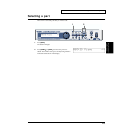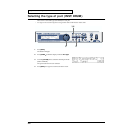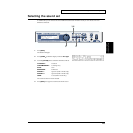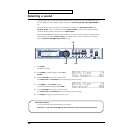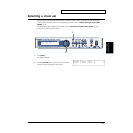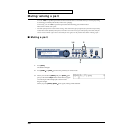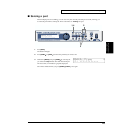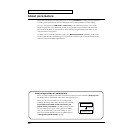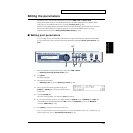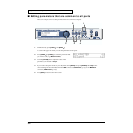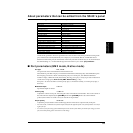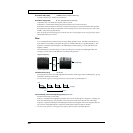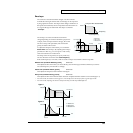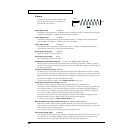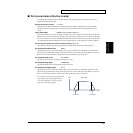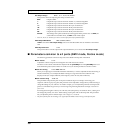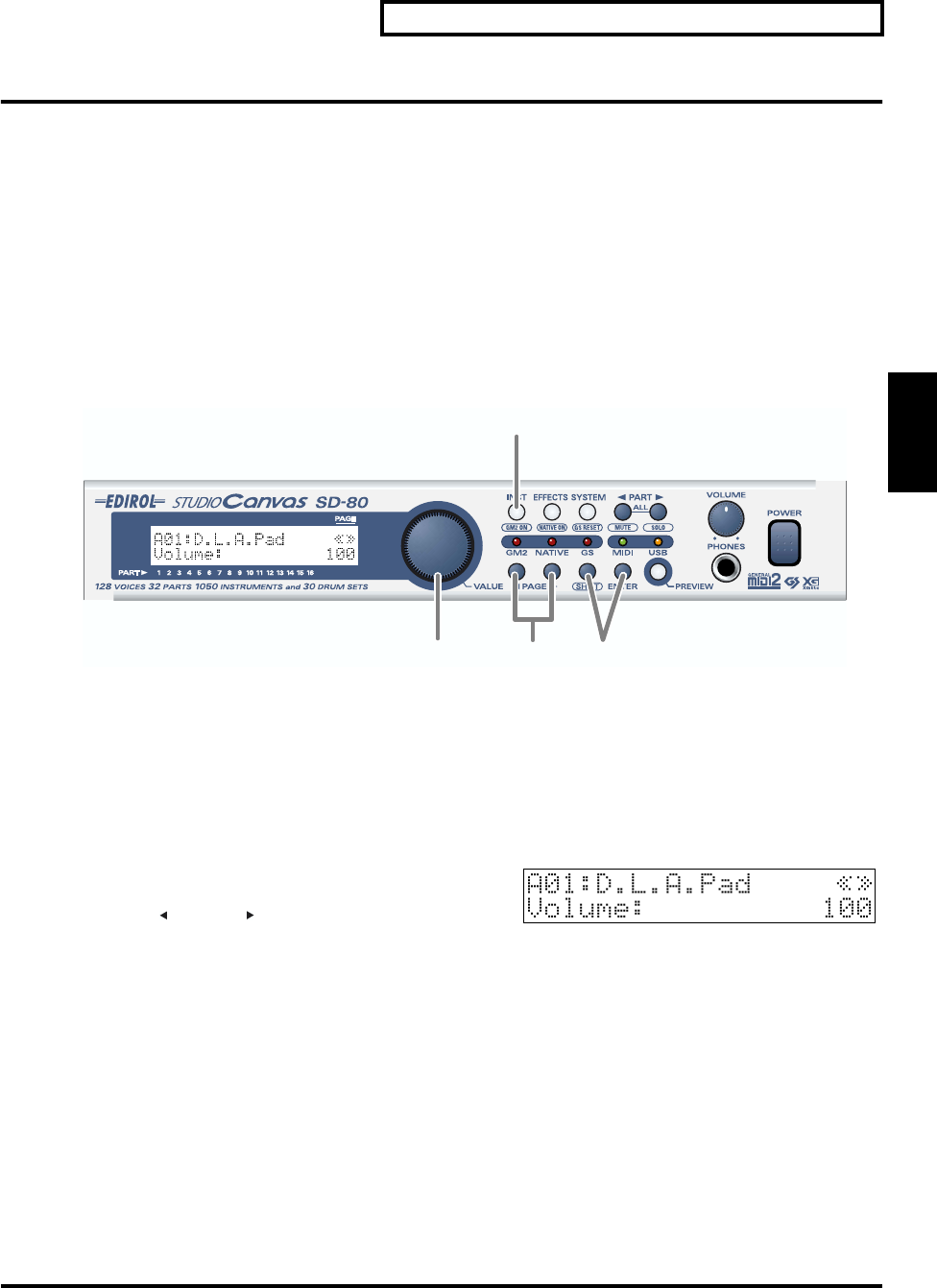
31
Using the internal sound generator
Using the internal
sound generator
Editing the parameters
Parameters can be controlled from the SD-80's panel only in GM2 mode and Native mode.
Of the parameters that can be controlled from the SD-80, only MFX settings that were edited in Native
mode can be saved within the SD-80 as a user patch ("Saving a patch" (p. 50)).
Chorus/reverb settings and part parameters will be lost when the SD-80 is powered-off. We recommend
that you store these settings in a sequencer program or on an external MIDI sequencer, by using
individual data transmission ("Writing/loading SD-80 settings" (p. 69)).
■ Editing part parameters
You can change the way in which the sound selected for a part will be heard, to adjust the sound ideally
for your performance. Part parameters include parameters that adjust the volume, tonal character, and
pitch.
fig.5-10
1. Make sure that the sound generator mode is set to either GM2 or Native.
(➝ "Switching the sound generator mode" (p. 22).
2. Press [INST].
The button will light.
3. Select the part and sound.
(➝ "Selecting a part" (p. 23) and "Selecting a sound" (p. 26))
fig.5-10a_67.2
4. After you have selected the part and sound, press
[PAGE ] or [PAGE ] to access the parameter that you
want to edit.
5. Turn the [VALUE] dial.
The value of the parameter you selected in step 4 will change.
6. If you want to keep the results of your editing, hold down [SHIFT] and press [ENTER] after step 5. The
current setting will be transmitted from the USB connector ("USB mode" (p. 19)) or the MIDI OUT
connector ("MIDI mode" (p. 20)).
7. Press [INST] once again to return to the main screen.
* If you want to transmit the state of the sound generator to an external MIDI device all at once, use Bulk Dump. For
details on Bulk Dump, refer to "Transmitting a bulk dump" (p. 69).
2,7
6
4
3



